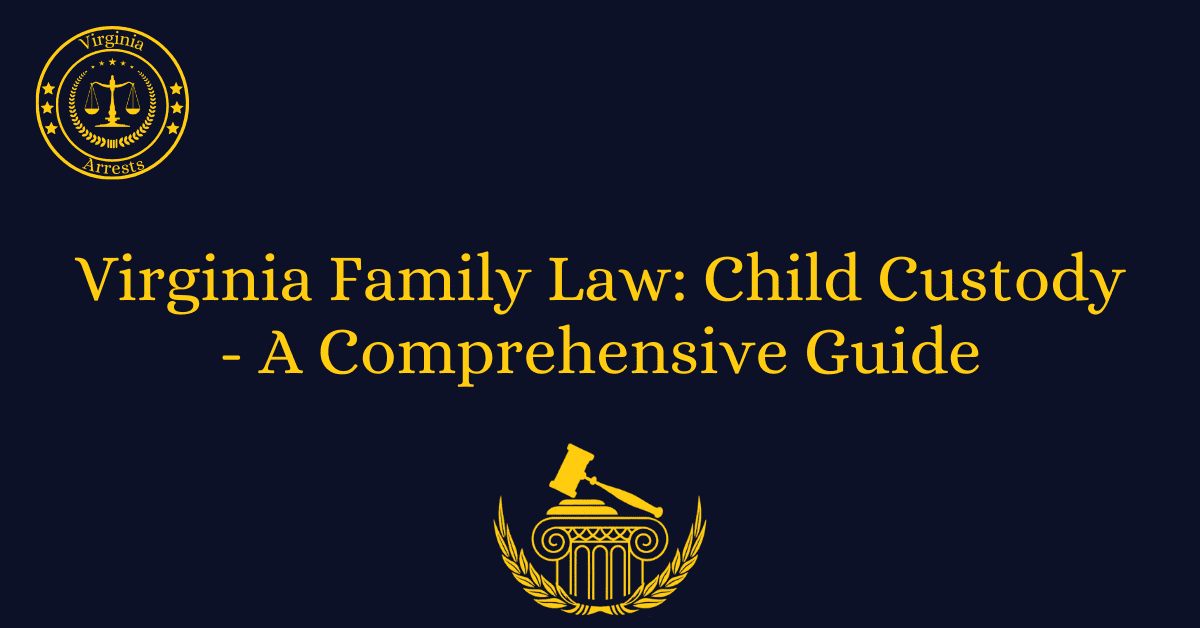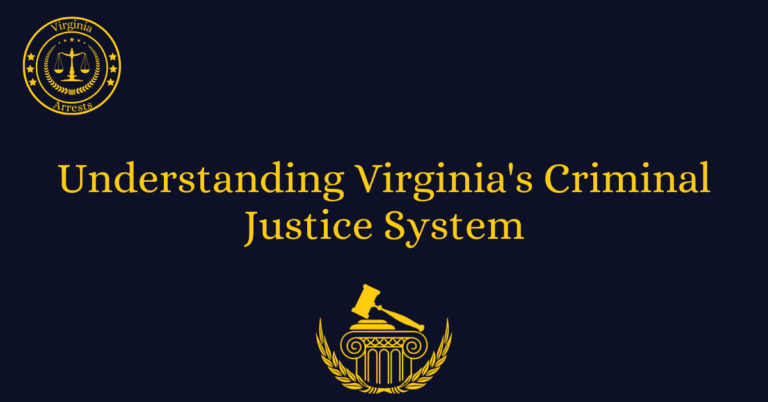Virginia Family Law: Child Custody – A Comprehensive Guide
Child custody cases can be emotionally challenging and legally complex, especially in the state of Virginia. Understanding the intricacies of Virginia family law regarding child custody is crucial for parents navigating through separation or divorce. In this comprehensive guide, we’ll delve into the various aspects of child custody law in Virginia, including types of custody, factors considered by courts, and the process of determining custody arrangements.
Types of Custody in Virginia
- Legal Custody: Legal custody refers to the authority to make important decisions regarding the child’s upbringing, such as education, healthcare, and religious upbringing. In Virginia, legal custody can be awarded solely to one parent (sole legal custody) or jointly to both parents (joint legal custody).
- Physical Custody: Physical custody determines where the child will reside. It can also be awarded solely to one parent (sole physical custody) or shared between both parents (joint physical custody).
- Sole Custody: Sole custody grants one parent both legal and physical custody of the child. The non-custodial parent may still have visitation rights unless deemed unfit by the court.
- Joint Custody: Joint custody involves both parents sharing legal and/or physical custody of the child. It can be joint legal custody, joint physical custody, or both.
Factors Considered by Virginia Courts
When determining child custody arrangements, Virginia courts prioritize the best interests of the child. Several factors are taken into account, including:
- Child’s Age and Needs: The court considers the age, physical and mental health, and any special needs of the child.
- Parental Fitness: Each parent’s ability to provide for the child’s physical, emotional, and developmental needs is assessed. This includes factors such as stability, home environment, and parenting skills.
- Child’s Relationship with Parents: The court evaluates the child’s bond with each parent and their respective involvement in the child’s life.
- Co-Parenting Ability: Courts favor parents who demonstrate a willingness and ability to cooperate and communicate effectively in matters concerning the child’s upbringing.
- Child’s Preference: Depending on the child’s age and maturity, the court may consider their preference regarding custody arrangements.
- History of Domestic Violence or Abuse: Any history of domestic violence, substance abuse, or neglect may significantly impact custody decisions, prioritizing the safety and well-being of the child.
The Custody Determination Process
- Filing a Petition: The custody process typically begins with one parent filing a petition for custody with the appropriate court.
- Mediation or Settlement: In some cases, parents may attempt mediation or negotiate a custody agreement outside of court with the help of attorneys or mediators.
- Court Evaluation: If parents cannot reach a mutual agreement, the court may order a custody evaluation conducted by a neutral third party, such as a guardian ad litem or custody evaluator. The evaluator assesses various factors and submits a report to the court.
- Court Hearing: If the case proceeds to trial, both parents present their arguments and evidence regarding custody arrangements in court. The judge then makes a decision based on the evidence presented and the best interests of the child.
- Custody Order: Once the court reaches a decision, a custody order outlining the custody and visitation arrangements is issued.
Modification of Custody Orders
Custody orders in Virginia are subject to modification if there is a significant change in circumstances warranting a modification, such as relocation, changes in the child’s needs, or concerns about parental fitness. Parents seeking a modification must file a petition with the court and demonstrate the changed circumstances.
FAQs
What is child custody?
Child custody refers to the legal right and responsibility of a parent or guardian to make decisions for and care for their child.
What are the different types of custody arrangements?
There are several types of custody arrangements, including sole custody, joint custody, and split custody. Each arrangement has its own specific considerations and implications.
How does the court determine child custody?
The court considers various factors when making custody determinations, including the child’s best interests, the ability of each parent to provide a stable and nurturing environment, and the child’s relationship with each parent.
Can grandparents or other relatives seek custody?
Yes, in certain circumstances, grandparents or other relatives may seek custody if it is deemed to be in the best interests of the child.
What if the parents cannot agree on a custody arrangement?
If the parents cannot reach an agreement on a custody arrangement, the court may intervene and make a decision based on the best interests of the child.
How can Virginia Family Law help with child custody cases?
With years of experience in handling child custody cases in Virginia, our team of dedicated professionals is well-versed in the state’s laws and regulations. We provide tailored guidance and support to help you navigate the complexities of child custody and prioritize the best interests of your child.
Conclusion
Navigating child custody proceedings in Virginia requires a thorough understanding of state laws and the legal process. By familiarizing themselves with the types of custody, factors considered by courts, and the custody determination process outlined in this guide, parents can better advocate for the best interests of their children during custody proceedings. Seeking guidance from experienced family law attorneys can also provide invaluable support and assistance throughout the custody process.







